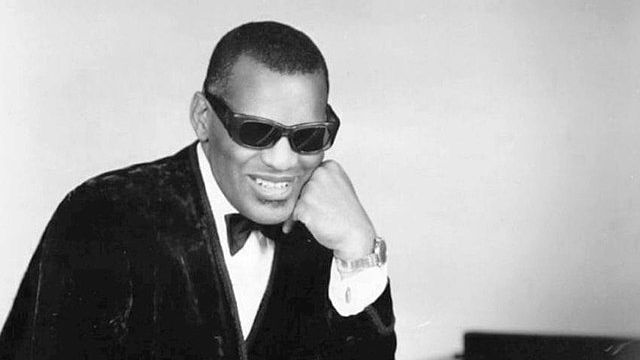Ray Charles Robinson, known to the world simply as Ray Charles, stands as one of the most influential and innovative musicians of the 20th century. Born on September 23, 1930, in Albany, Georgia, Charles overcame adversity and blindness to become a musical pioneer, revolutionizing the landscape of popular music with his soulful voice, virtuosic piano playing, and groundbreaking fusion of gospel, blues, R&B, and jazz. In this extensive exploration, we delve deep into the life, music, and enduring legacy of the legendary Ray Charles.
Early Life and Musical Roots
Ray Charles’s journey into the world of music began at an early age, as he was introduced to the sounds of gospel music in the churches of rural Georgia. Despite losing his sight at the age of seven due to glaucoma, Charles’s passion for music only grew stronger, as he immersed himself in the rich musical traditions of the Deep South. Influenced by artists such as Nat King Cole, Louis Armstrong, and Charles Brown, Charles developed his own distinctive style, blending elements of blues, jazz, and gospel into a sound that was uniquely his own.
The Atlantic Years: Ray Charles’s Rise to Fame
In the early 1950s, Ray Charles signed with Atlantic Records, where he began to achieve commercial success with hits such as “I Got a Woman,” “What’d I Say,” and “Georgia on My Mind.” His innovative fusion of rhythm and blues with gospel and jazz elements, combined with his raw emotional delivery and soulful voice, earned him widespread acclaim and established him as a leading figure in the burgeoning soul music movement.
A Man and His Piano: Ray Charles’s Musical Genius
At the heart of Ray Charles’s music was his virtuosic piano playing, which served as the foundation for his distinctive sound. Charles’s mastery of the piano was unparalleled, as he effortlessly blended intricate melodies, soulful chords, and rhythmic improvisation to create music that was both sophisticated and accessible. His innovative use of chord voicings, bluesy runs, and gospel-inspired flourishes set him apart as a true musical genius, earning him admiration and respect from musicians and fans alike.
Breaking Down Barriers: Ray Charles’s Impact on Popular Culture
Ray Charles’s influence extended far beyond the realm of music, as he broke down racial barriers and challenged societal norms through his artistry and activism. His crossover success in the predominantly white world of pop music paved the way for other African American artists to achieve mainstream recognition, while his unwavering commitment to civil rights and social justice inspired generations of activists and artists to use their platform for positive change.
The Legacy Lives On: Ray Charles’s Enduring Influence
Though Ray Charles passed away on June 10, 2004, his legacy continues to resonate with audiences around the world. From his timeless recordings and electrifying live performances to his enduring impact on popular culture and social consciousness, Charles’s influence can be felt in every corner of the musical landscape. His music remains as relevant and influential today as it was during his lifetime, with new generations of fans discovering and appreciating his groundbreaking contributions to the art form.
Honors and Recognition
Ray Charles received numerous awards and accolades throughout his illustrious career, including 17 Grammy Awards, a Grammy Lifetime Achievement Award, and induction into the Rock and Roll Hall of Fame. His signature song, “Georgia on My Mind,” was designated as the official state song of Georgia in 1979, further cementing his legacy as one of the greatest musicians of all time.
Conclusion
In conclusion, Ray Charles stands as a towering figure in the history of popular music, a musical pioneer whose innovative blend of gospel, blues, jazz, and R&B transcended genres and touched the hearts of millions around the world. From his humble beginnings in rural Georgia to his meteoric rise to fame as a global icon, Charles’s journey was one of triumph over adversity, resilience in the face of hardship, and unbridled creativity. Though he may have left this world, his music lives on, a testament to the enduring power of art to inspire, uplift, and unite people across generations and cultures. As we celebrate the life and music of Ray Charles, we are reminded of the transformative power of music to transcend boundaries, heal wounds, and bring joy to the world.
